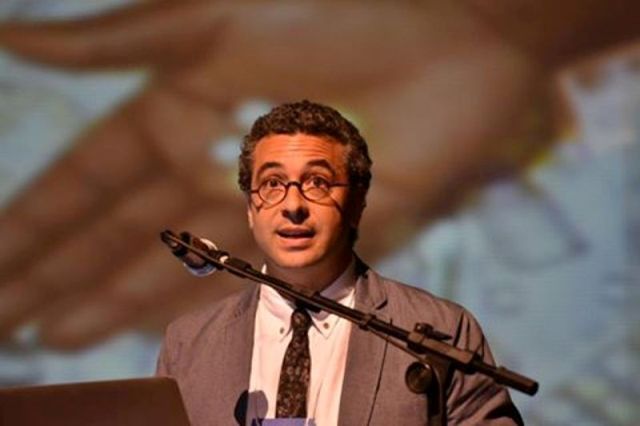
Dr. Quique Bassat’s work aims at reducing the intolerable impact of infectious diseases in children’s health
Malaria still kills a large amount of people in low-income countries, where it is still endemic, and most victims are children
04/10/2016
Child health in tropical countries is still a great challenge. Innovation and research are crucial to manage this huge problem with creativity
Long known among tropical diseases, malaria still gathers efforts from different countries for its eradication. During the 52nd Congress of the Brazilian Society of Tropical Medicine (MedTrop), Spanish pediatrician and malaria expert, Dr. Quique Bassat, pointed that for the past 15 years, the number of countries with less than 10 malaria cases per year increased, i.e., those closer to elimination. For the expert, all countries can accelerate elimination, with community involvement and interventions at local level, as suggested by the World Health Organization (WHO) program, but always considering innovation and developing new tools.
Respiratory infections, for example, are the leading cause of death in developing countries. Since these deaths are avoidable under proper medical care, a large proportion of these deaths take place in low-income countries. Pneumonia is the most common severe infection. Among children under 5 years old, pneumonia is responsible for 18% of all deaths, or over 1.3 million per year; pneumonia kills far more than HIV or malaria. Risk factors for pneumonia include living in overcrowded conditions, malnutrition, non-immunization, HIV and exposition to tobacco or indoor smoke. Respiratory diseases in children can be prevented or relieved through several basic steps: child nutrition enhancement; breastfeeding promotion; full immunization provision; enhance life quality to avoid overcrowding; reduce air pollution in indoor environments; treat HIV and prevent mother-child HIV transmission.
During the event, the researcher who currently works in Mozambique, in Africa, talked with the BSTM Press about child health in tropical countries.
BSTM: What are the most dangerous diseases for children in the tropical countries?
Dr. Quique: Infections remain the principal cause of morbidity and mortality in low-income countries. Most of those infections that still cause an extensive number of deaths can easily be prevented, as there are tools that exist that can prevent them. For instance, invasive bacterial disease (pneumonia, meningitis, etc.) secondary to infections caused by streptococcus pneumoniae, and Haemophilus influenzae type b have traditionally been the first cause of death, although the wide implementation of effective conjugate vaccines in infancy are massively decreasing their burden. Malaria still causes in low income countries where it is endemic a significant number of deaths (438,000 in 2015), the majority of which in young children. Although the incidence and associated deaths of malaria have been decreasing rapidly in the last decade, its numbers are still unacceptable. Importantly, diseases of the neonatal period, including complications of prematurity, birth asphyxia, and neonatal sepsis, are now occupying the niche left by other infections as the major causes of child mortality.
BSTM: Lack attention of the authorities of these countries for diseases that affect children?
Dr. Quique: No, the authorities do what they can, in relation also to very meagre available budgets to spend in health. Many African countries only have a bout 10US$ per person/year to spend on health, and if you imagine the amount of things you need to do (and money to spend) for preventing morbidity and mortality you will be able to conclude how underfunded they are. Having said so, most governments manage to do “small miracles” with the little funding available.
BSTM: What is your assessment on child health in the tropical countries?
Dr. Quique: It remains a tremendous task. Innovation and research are necessary to creatively manage this huge problem. Horizontalization of the strategies and approaches (rather than using a vertical approach, as has traditionally been the case) will be necessary. Without improving the fragile health systems, we will never manage to redress the situation. Elimination strategies for certain diseases are also necessary (for example, against malaria).
BSTM: What is the perspective of improving the attention to childrens health in the tropical countries in the coming years?
Dr. Quique: The world has done enormous progresses in this respect. The Millennium development goals did succeed in terms of raising the attention to the health inequities in the world, and tremendous progress has been achieved in terms of reducing child mortality. Now is our moral obligation to not relax, and continue pushing for making child survival a global obligation, not an option.
BSTM: Which are the most frequent child illness causes in the tropics?
Dr. Quique: Infections are the most frequent preventable diseases in the tropics. Many of these infections could be avoided if the existing vaccines were applied, but that sometimes, do not reach those places where they are most needed. Malaria (for which there is still no vaccine) is the other great disease cause that specifically strikes the poorest countries.
BSTM: How can eliminating malaria change this scenario?
Dr. Quique: Malaria is no longer the disease with greatest mortality in Africa, as it traditionally was. The drop in malaria incidence is positively affecting the current scenario, and we have witnessed an increasing number of fever cases that are not caused by malaria. However, we cannot drop guard, because malaria always comes back. For this reason, the only possible scenario is to advance towards elimination.…










